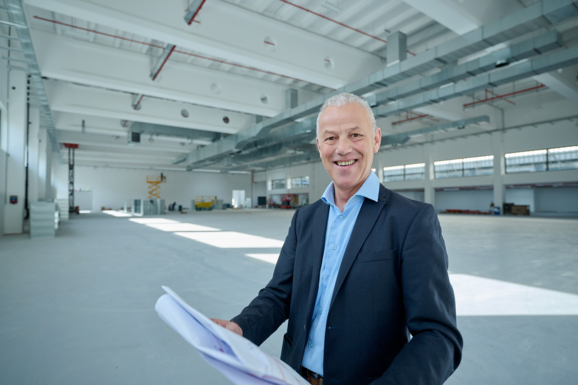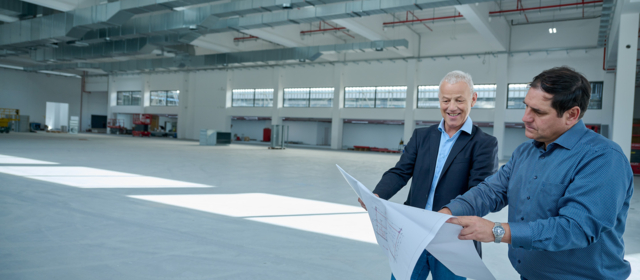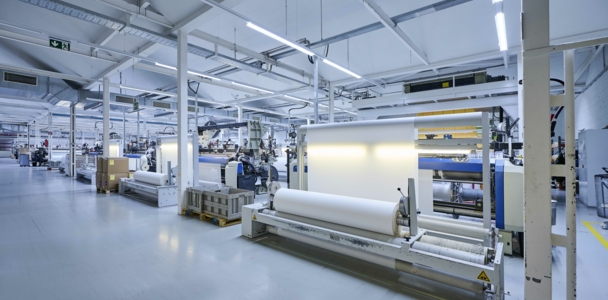Building the future together
In a company as large as Getzner Textil, there is always something to be modernised, renovated or expanded. One person who has been involved in many such major projects is Martin Zech. The joint history of Martin and Getzner Textil began over 25 years ago, ten years of which he was Head of Technical Services.

The man for many tasks
‘There was and still is a lot to do,’ Martin remembers numerous projects in the area of machinery. These include, for example, the purchase of the pad-steam washing system 24 years ago, which is still in daily use today. Or the construction of the first large calender, whose system group is still essential for the damask business with Africa today. ‘As a technician and project manager, I was responsible for project implementation, maintenance organisation and therefore reliable machine availability in the finishing department until 2014,’ Martin sums up. But efficient plant operation, adherence to budgets and ongoing technical inspections with suppliers were also part of his remit.
Getzner Textil is building: Finishing hall 6
When he took over the management of the Technical Services division, this expanded once again. During this time, many construction measures were carried out. ‘I really enjoyed renovating the head building of the weaving mill, which dates back to 1870/71,’ Martin enthuses about the numerous new buildings and renovations. The largest and most significant expansions were the construction of the hall for stenter frames, the calenders and the piece dyeing plant in 2015 and the finishing hall 6, which is currently under construction. Over a construction period of around two years, a hall for finishing fabrics is being built here, which also offers around 4,500 square metres of space for offices, meeting rooms, logistics and the warehouse. ‘In December, the façade, the roof insulation and the retention basin along Gerberstrasse will be installed. This will be followed in January by the extensive green roof and then the entire infrastructure for the supply of energy, water and steam, the heating system and the waste water and ventilation system. The construction of the first stenter frame in this new area will then begin in February of the new year,’ says Martin. Together with the expansion of the finished goods high-bay warehouse, this will lay the foundation for a significant increase in capacity.
In addition, there are projects such as the new construction and renovation of the Technical Services building, the expansion of the weaving mill for the Technics business unit and the expansion of the district heating supply. Issues such as compliance, environmental protection and employee protection have also always been important to Martin.

New photovoltaic system reduces electricity costs
‘Energy supply and the efficient and sustainable use of energy was and is a very central issue with high priority at Getzner Textil,’ Martin points to major projects such as the expansion of district heating or the new photovoltaic system. ‘Parallel to ongoing energy-saving measures, a PV system with around 1,000 kWp was installed on the weaving mill roof this year.’ The system's output corresponds to the energy requirements of 230 single-family homes and is Austria's largest fully optimised PV system from Huawei. A total of 2,344 modules and around 40 kilometres of cable were installed on a module area of 4,688 m².


